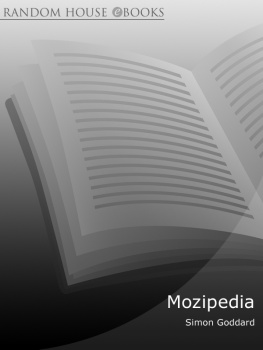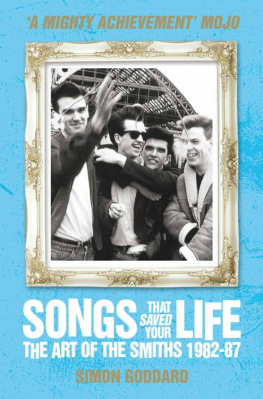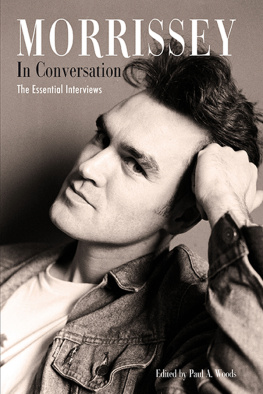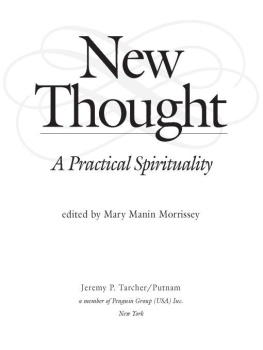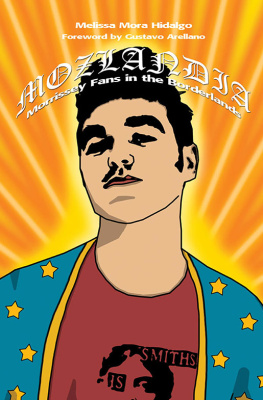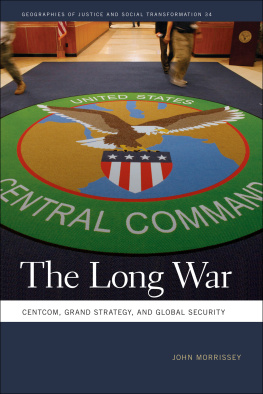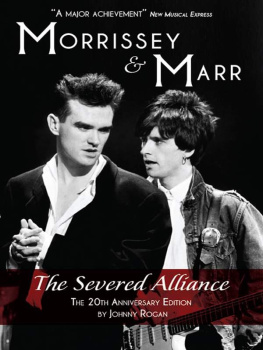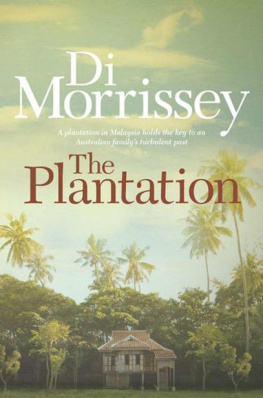Contents
About the Author
Simon Goddard was born as Britain was swinging to the number one sound of Benny Hills Ernie (The Fastest Milkman In The West). All these years later it still says nothing to him about his life.
He lives in London where he works as a music journalist.
About the Book
The world according to Moz...
Steven Patrick Morrissey is one of the most original, most fanatically adored and most controversial voices in the history of popular music. With The Smiths, he led the most influential British guitar group of the 1980s, his enigmatic wit and style defining a generation. As a solo artist, hes continued to broach subjects no other singer would dare. Worshipped by some, vilified by others, Morrissey is a unique rock and roll creation.
Mozipedia is the first in-depth encyclopedia of the man, the myth and the music. Bringing together every song, every album, every collaborator, his personal heroes and his secret influences, with over 600 entries it covers every aspect of Morrisseys life and career.
The summation of years of interviews and meticulous research by Smiths/Morrissey authority Simon Goddard, Mozipedia is the definitive word on a cultural icon.
For Misery Guts of Bonnyrigg:
Are you still there, or have you moved away?
Preface
There is a man, a certain man
I dont mind how Im remembered so long as theyre precious recollections. I dont want to be remembered for being a silly, prancing, nonsensical village idiot. But I really do want to be remembered. I want some grain of immortality. I think its been deserved. Its been earned.
SO SAID MORRISSEY in 1985, just two years into The Smiths recording career. If he hadnt quite guaranteed his immortality back then, he has now.
Adore him or abhor him, Morrissey has left too big an indentation upon pop, upon art, upon peoples lives to be erased from history. Hes one of those rare artists whose impact upon our culture is as irreversibly dramatic as the asteroid which slammed into the surface of the earth some 65 million years ago, snuffing out all dinosaur life in a flash. The history of art is shaped by such thunderbolts the Beethovens and Picassos who revolutionise the past conventions of their chosen field, thereby determining its future. The symphony has never been the same since Beethoven, nor the painting since Picasso, nor the pop song since Morrissey, who sometimes in as little as two minutes conveys as much hope, loss, tragedy, comedy, pathos, wit, joy and despair as can be found in the pages of the heftiest Victorian literature. There is Dickenss David Copperfield and there is The Smiths Girlfriend In A Coma. Both are great works of art, and great art such as Dickens, Beethoven, Picasso and Morrissey is forevermore.
Yet Morrissey, the artist and the man, remains an enigma. It is commonly understood that: hes a pop singer; hes a vegetarian; he was celibate in the 1980s (and because of this most people assume he still is); he has a quiff and a prominent chin; he likes Oscar Wilde, James Dean and the New York Dolls; he doesnt like the monarchy, judges or Norfolk poultry farmers; his words are usually heartbreakingly sad, hysterically funny or a combination of both; hes from Manchester, and his Christian names are Steven Patrick.
But the mystery of Morrissey is that the more his surface is scratched, the more puzzlingly contrary he becomes. He likes Jacqueline du Pr but he also likes the Cockney Rejects. His favourite film is A Taste Of Honey but its also Romper Stomper. He likes boxing but he also condemns all blood sports. He sings of being gentle and kind but he also likes the Kray twins. He says hes not gay but then he writes a song like Dear God Please Help Me, which graphically describes a homosexual encounter. He says reggae is vile but then he revives the 1970s reggae label Attack Records. He sings that England is his but then leaves to live in Los Angeles. And so on.
It is in trying to evaluate all this information simultaneously a brain-haemorrhaging feat of doublethink to the power of ten that the riddle of Morrissey is born. But the answer to the riddle might lie in the process of forming the sum. If Morrissey could be deconstructed into as many separate component parts as can be easily defined, if these parts were then scattered on as large a canvas as could accommodate them so they might resemble the stars in the night sky, what would they look like? What shape constellation might Morrissey be? Which of his stars would shine the brightest and which would be invisible to the naked eye without the aid of a telescope? Would we, then, have a clearer understanding of Morrissey?
This was the idea in creating Mozipedia. To atomise Morrissey, to count the dots and to let those dots be joined in an infinite number of combinations. So that between a favourite 1950s British B-movie, a Smiths sleeve cover star, the recollections of his former bass player, a favourite poet, a forgotten B-side, his choice of record labels and his pathological aversion to garlic and onions the reader might form an independent and unique insight into Morrissey more lucid than that mapped out in a standard narrative biography.
Writing Mozipedia was a lot like living in my own version of Orson Welless Citizen Kane, where I was Thompson the reporter and Steven Patrick Morrissey was my equivalent Charles Foster Kane, the subject of investigation. Thompson set out to discover not what a man did but who he was by speaking to those who knew him and examining every available clue. The one difference is that Thompson was trying to form a portrait of the recently deceased. My subject is still very much alive but no less impenetrable or, indeed, inaccessible; there came a point in the research where those contacted still working in the service of Morrissey either refused to speak outright or, equally telling, initially agreed only to then nervously withdraw, seemingly not of their own volition. While frustrating for any writer, such distrust and power of persuasion is in itself another atom, an essential dot to be joined in the outline of Morrisseys psyche.
Thompsons quest is to uncover the identity of Rosebud, the final word Kane gasped before dying. He fails to find it but remains philosophical in defeat: I dont think any word can explain a mans life. This is certainly true of Morrissey. Individually, the song Maladjusted, his love for the music of Phil Ochs, or Roxy Music, or the films of Margaret Rutherford arent enough to explain who he is. But collectively, its a different story. When surveying the mountainous jumble of Kanes worldly goods, one of Thompsons colleagues wonders aloud, If you put all this stuff together, palaces, paintings, toys and everything, what would it spell? Put together Maladjusted, Ochs, Roxy and Rutherford and were already halfway to spelling Morrissey.
True to the spirit of Thompson, I never did find my Rosebud maybe like Kanes childhood sled its here hiding within the hotchpotch waiting to be discovered. But better than that, I learned to love Morrissey for the great artist he is. My hope in finishing Mozipedia is that the reader will learn something similar.
These are the ways, now yours to assemble.
Simon Goddard
Mozingredients
THE ENTRIES IN Mozipedia can be broadly divided into the following categories:
1. The music of Morrissey and The Smiths
Every known song recorded, or attempted, by Morrissey and The Smiths has its own entry. The same goes for every studio album and major compilation.
Songs are annotated by composer and listed by their first release format with the exception of all singles, introduced as such regardless of whether the song first appeared on a studio album. The term B-side is used generally for any track accompanying a single without specifying the exact format, specific details of which can be found in the Mozography appendix.
Next page
